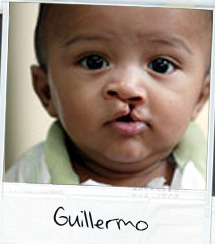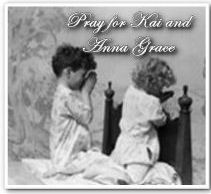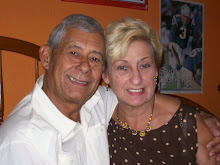
EL SACO DE CARBON
Un día, Jaimito entró a su casa dando patadas en el suelo y gritando muy molesto.
Su padre lo llamó. Jaimito lo siguió, diciendo en forma irritada:
- Papá, ¡Te juro que tengo mucha rabia! Pedrito no debió hacer lo que hizo conmigo.
Por eso, le deseo todo el mal del mundo, ¡Tengo ganas de matarlo!
Su padre, un hombre simple, pero lleno de sabiduría, escuchaba con calma al hijo quien continuaba diciendo:
- Imagínate que el estúpido de Pedrito me humilló frente a mis amigos. ¡No acepto eso!
Me gustaría que él se enfermara para que no pudiera ir más a la escuela.
El padre siguió escuchando y se dirigió hacia una esquina del garaje de la casa, de donde tomó un saco lleno de carbón el cual llevó hasta el final del jardín y le propuso a Jaimito:
- ¿Ves aquella camisa blanca que está en el tendedero? Hazte la idea de que es Pedrito y cada pedazo de carbón que hay en esta bolsa es un mal pensamiento que va dirigido a él. Tírale todo el carbón que hay en el saco, hasta el último pedazo. Después yo regreso para ver como quedó.
El niño lo tomó como un juego y comenzó a lanzar los carbones pero como la tendedera estaba lejos, pocos de ellos acertaron la camisa.
Cuando, el padre regresó le preguntó:
- Hijo ¿Qué tal te sientes?
- Cansado pero alegre. Acerté algunos pedazos de carbón a la camisa.
El padre tomó al niño de la mano y le dijo:
- Ven conmigo quiero mostrarte algo.
Lo colocó frente a un espejo que le permitió ver todo su cuerpo. ¡Qué susto!
Estaba todo negro y sólo se le veían los dientes y los ojos. En ese momento el padre le dijo:
- Hijo, como pudiste observar, la camisa quedó un poco sucia pero no es comparable a lo sucio que quedaste tú.
El mal que deseamos a otros se nos devuelve y multiplica en nosotros. Por más que deseáramos o pudiéramos perturbar la vida de alguien con nuestros pensamientos, los residuos y la suciedad siempre queda en nosotros mismos.
Ten mucho cuidado con tus pensamientos porque ellos se transforman en palabras.
Ten mucho cuidado con tus palabras porque ellas se transforman en acciones.
Ten mucho cuidado con tus acciones porque ellas se transforman en hábitos.
Ten mucho cuidado con tus hábitos porque ellos moldean tu carácter.
Y ten mucho cuidado con tu carácter porque de él dependerá tu destino.

Un día, Jaimito entró a su casa dando patadas en el suelo y gritando muy molesto.
Su padre lo llamó. Jaimito lo siguió, diciendo en forma irritada:
- Papá, ¡Te juro que tengo mucha rabia! Pedrito no debió hacer lo que hizo conmigo.
Por eso, le deseo todo el mal del mundo, ¡Tengo ganas de matarlo!
Su padre, un hombre simple, pero lleno de sabiduría, escuchaba con calma al hijo quien continuaba diciendo:
- Imagínate que el estúpido de Pedrito me humilló frente a mis amigos. ¡No acepto eso!
Me gustaría que él se enfermara para que no pudiera ir más a la escuela.
El padre siguió escuchando y se dirigió hacia una esquina del garaje de la casa, de donde tomó un saco lleno de carbón el cual llevó hasta el final del jardín y le propuso a Jaimito:
- ¿Ves aquella camisa blanca que está en el tendedero? Hazte la idea de que es Pedrito y cada pedazo de carbón que hay en esta bolsa es un mal pensamiento que va dirigido a él. Tírale todo el carbón que hay en el saco, hasta el último pedazo. Después yo regreso para ver como quedó.
El niño lo tomó como un juego y comenzó a lanzar los carbones pero como la tendedera estaba lejos, pocos de ellos acertaron la camisa.
Cuando, el padre regresó le preguntó:
- Hijo ¿Qué tal te sientes?
- Cansado pero alegre. Acerté algunos pedazos de carbón a la camisa.
El padre tomó al niño de la mano y le dijo:
- Ven conmigo quiero mostrarte algo.
Lo colocó frente a un espejo que le permitió ver todo su cuerpo. ¡Qué susto!
Estaba todo negro y sólo se le veían los dientes y los ojos. En ese momento el padre le dijo:
- Hijo, como pudiste observar, la camisa quedó un poco sucia pero no es comparable a lo sucio que quedaste tú.
El mal que deseamos a otros se nos devuelve y multiplica en nosotros. Por más que deseáramos o pudiéramos perturbar la vida de alguien con nuestros pensamientos, los residuos y la suciedad siempre queda en nosotros mismos.
Ten mucho cuidado con tus pensamientos porque ellos se transforman en palabras.
Ten mucho cuidado con tus palabras porque ellas se transforman en acciones.
Ten mucho cuidado con tus acciones porque ellas se transforman en hábitos.
Ten mucho cuidado con tus hábitos porque ellos moldean tu carácter.
Y ten mucho cuidado con tu carácter porque de él dependerá tu destino.







